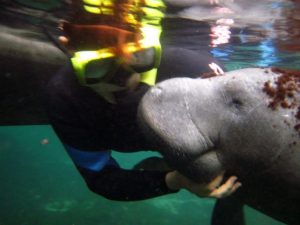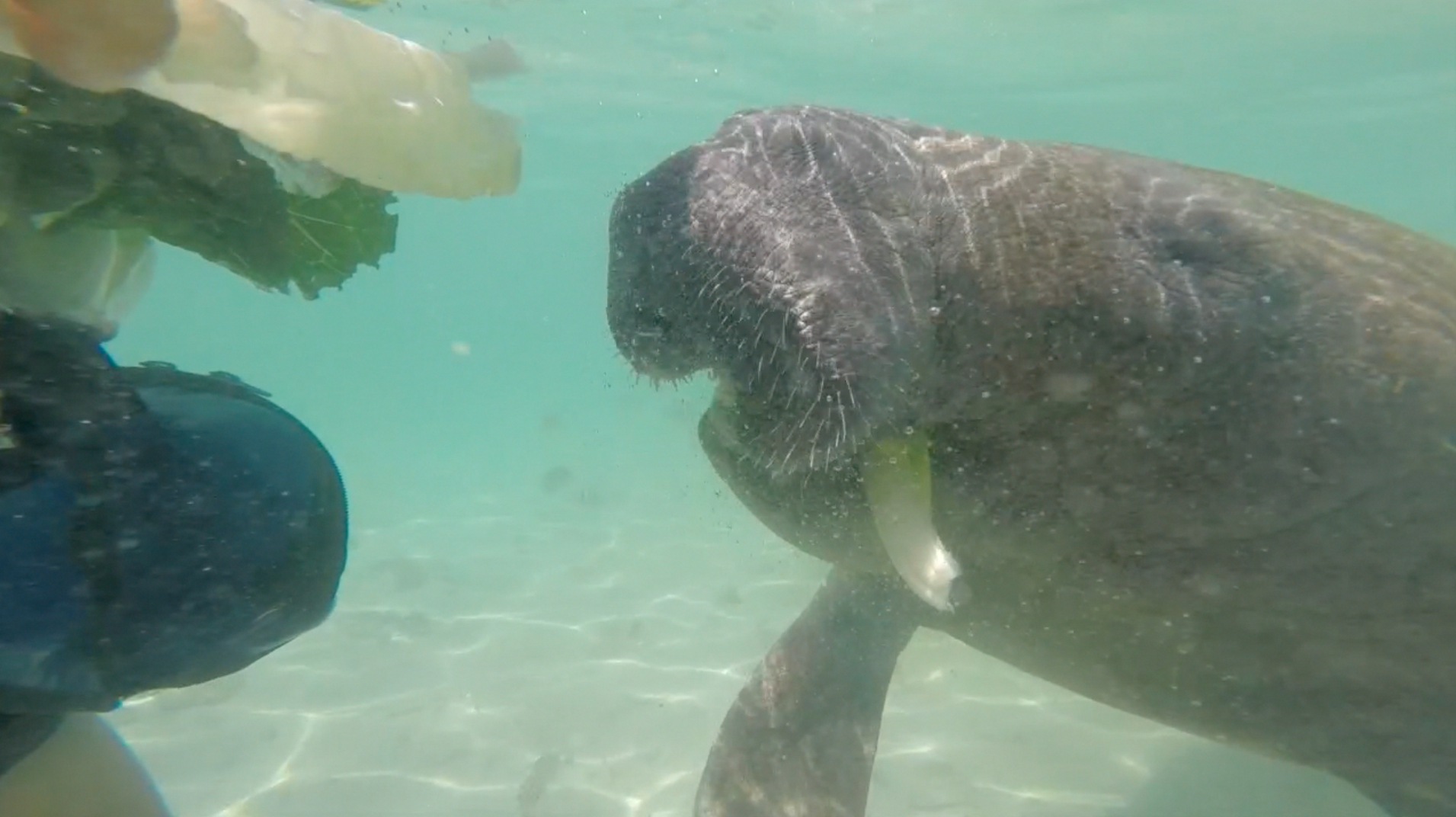Visitors to the Caribbean are ever-eager to dive or snorkel with sea turtles, sharks, stingrays and other famous sea life. Whether tiny or enormous, slow-moving or slick and predatory, indigenous marine animals are fascinating to observe, especially in their own natural environment. And summer brings vacation season, when fresh waves of tourists arrive in resort areas every week, ready for swimming and boating and drinking and photo ops.
One thing learned from my encounters with sea turtles and stingrays in the wild: once humans begin to heavily visit an area, animals quickly acclimate — either with fear or with bold curiosity, depending on the nature of the human behavior. Then there are the swimming pigs of Exuma, which have gone from tame to feral to aggressively food-motivated in less than a few decades.

Living in Miami, and seeing tourists have animal encounters of all kinds — from memorable contained experiences organized by cruise lines to painful encounters with jelly fish to terrifying shark sightings — I believe that many people have a natural instinct to interact with other species, and that if our oceans were to become empty as many watchdog groups warn, we would be bereft in many ways. With that said, on this summer’s travels and every future journey, whether it’s a manatee encounter in the Crystal River or a deep sea fishing expedition off the coast of Puerto Vallarta, tour operators and local guides must make more of an effort than ever to interact responsibly with animals in their own habitat.



